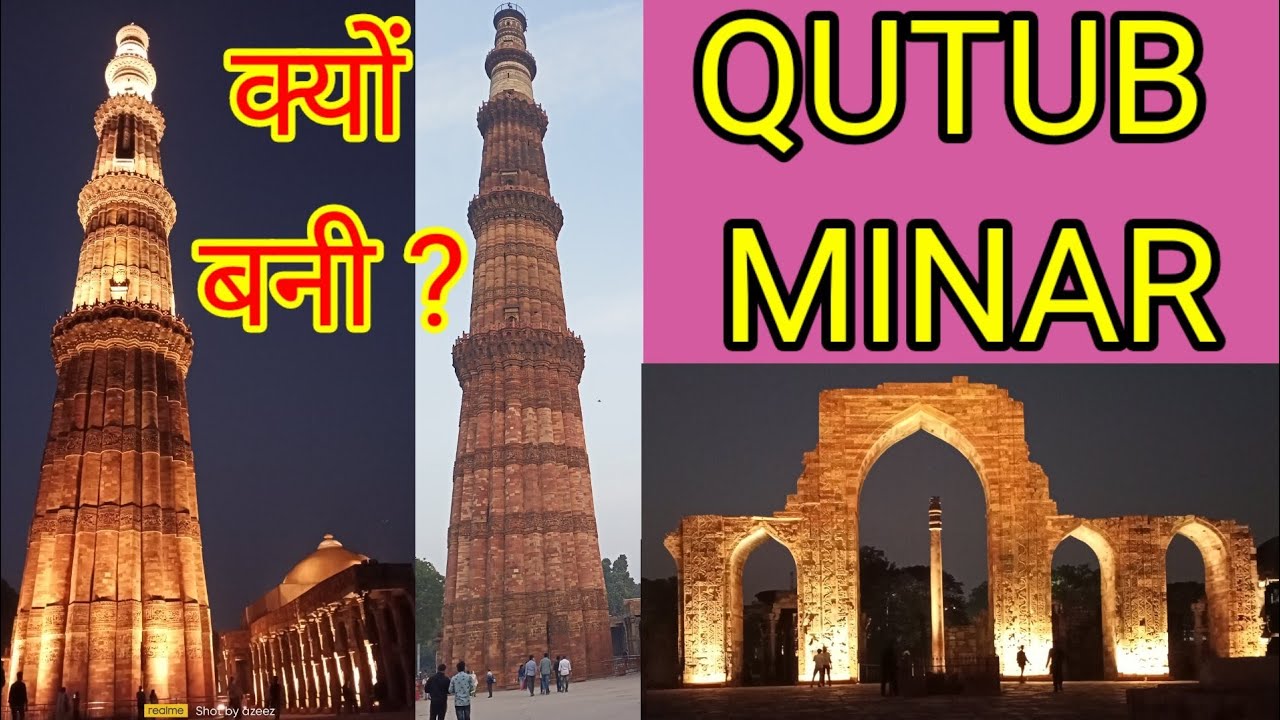Qutub Minar Delhi , Historical past of Qutub Minar , Journey Information to Qutub Minar , Sensible Historical past ofIndia
Qutub Minar
Top
72.5 metres (238 ft)
Stairs
379
Architectural model(s)
Islamic Structure
the tallest minaret on the earth constructed of bricks.
Development
Began in 1199 by Qutb-ud-din Aibak / accomplished in ~ 1220 by his son-in-law Iltutmish
The Basement Story of the Qutb Minar
Qutubuddin Aibak
The Second, Third, and Fourth Tales
Sham ud-Din Iltutmish
1326 broken by earthquake, Repaired by Muhammad bin Tughlaq.
1368 fifth flooring by Firoz Shah Tughlaq (1351–88)
1505, an earthquake broken Qutub Minar; it was repaired by Sikander Lodi (1489–1517)
1803, a serious earthquake prompted critical harm. Main Robert Smith of the British Indian Military renovated the tower in 1828 and put in a pillared cupola over the fifth story, making a sixth. The cupola was taken down in 1848, beneath directions from The Viscount Hardinge, who was the Governor Basic of India. on the time. It was reinstalled at floor degree to the east of Qutb Minar, the place it stays. This is called “Smith’s Folly”.
Qutub ud-Din Aybak,
(1206–1210),
was the founding father of the Mamluk Dynasty in Delhi and the primary sultan of the Delhi Sultanate
Qutb-ud-din Aibak was lastly bought by the ruler of Ghor in central Afghanistan, Sultan Muhammad Ghori. Qutb-ud-din Aibak steadily rose to the rank of a Commander and have become a trusted slave of Sultan Ghori
Qutb-ud-din Aibak topped himself the Sultan of Delhi in 1206, when Muhammad Ghori was killed on the battlefield. After his dying, when Aibak got here to the throne, he dominated over these locations the place he was appointed because the native receiver-general of Sultan Ghori.
Quwwat-ul-Islam Mosque, which was began round 1192 by Qutb-ud-din Aibak and Accomplished 1198
It consists of an oblong courtyard enclosed by cloisters, erected with the carved columns and architectural members of 27 Hindu and Jaina temples, which had been demolished by Qutub-ud-Din Aibak as recorded in his inscription on the primary jap entrance.
mosque was enlarged, by Shams-ud- Din Itutmish (A.D. 1210-35) and Ala-ud-Din Khalji.
The Iron Pillar within the courtyard bears an inscription in Sanskrit in Brahmi script of fourth century A.D., based on which the pillar was arrange as a Vishnudhvaja (customary of god Vishnu) on the hill referred to as Vishnupada in reminiscence of a mighty king named Chandra.
Shams-ud-din Iltutmish
(1210 – 1236)
was the third Muslim Turkic sultan of the Sultanate of Delhi.
Razia Sultana
1236–1240
Alauddin Khalji
1296–1316
Alai Darwaza
1311
Alai minar
1300
Alauddin Khalji madrasa
& Tomb
1315
Tomb of Imam Zamin
1538
reign of Mughal emperor Humayun
Smith’s Folly (gumbad)
Main Robert Smith of the British Indian Military
1828
1848 come down
Sanderson’s sundial
Mughal Mosque
Mughal Backyard
Handle :
Qutub Minar, Seth Sarai, Mehrauli, New Delhi, Delhi 110030
Timing :
On a regular basis
7 am to 7 pm
Ticket
On-line 35
Offline 40
Route :
Bus :
From Okhla, Sukhdev Vihar to Qutub Minar = 534
From Noida Sec-37 to Qutub Minar = 34
From Badarpur Boarder to Qutub = 717, 34
From Previous Delhi to Qutub Minar = 502
From IGI AirportT2 to Lado Sarai = 534A
Metro :
From Noida, Botanical Backyard & Okhla to Hauz Khas = Magenta Line, Change then Hauz Khas to Qutub Minar = Yellow Line.
From Badarpur Boarder to Kalkaji Temple = Violet Line, change then Kalkaji Temple to Hauz Khas = Magenta Line, change then Hauz Khas to Qutub Minar = Yellow Line.
From IGI Airport to New Delhi = Airport Categorical Line, change then New Delhi to Qutub Minar = Yellow Line.
From Previous Delhi, Chandni Chowk to Qutub Minar= Yellow Line
contact
9733379811
azeezratua9811@gmail.com
source

